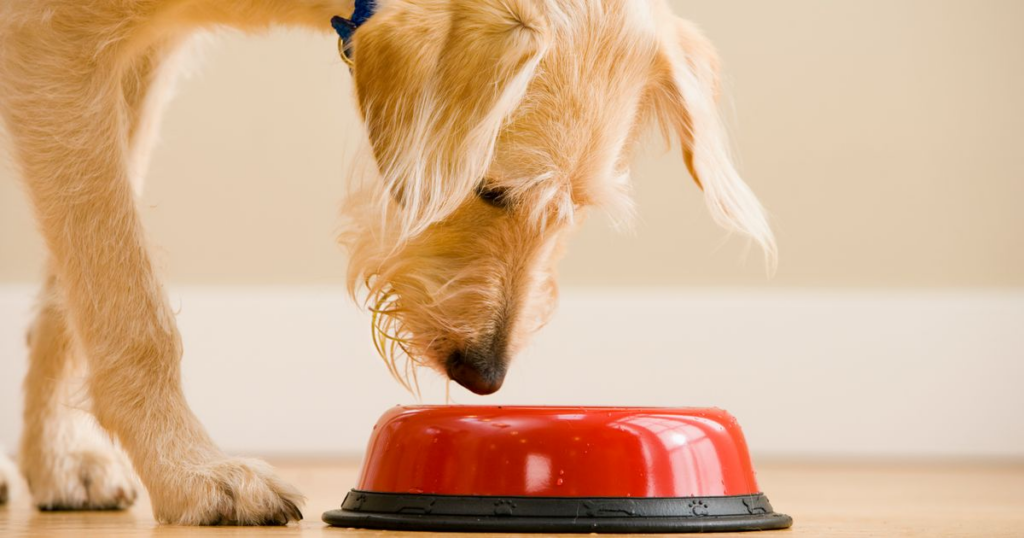Our community members are treated to special offers, promotions and adverts from us and our partners. You can check out at any time. More info
A dog lover has shared a crucial health warning regarding seven human foods that could prove harmful or even fatal to your beloved pooch.
While it's tempting to treat your four-legged friend to some of your own snacks, especially when they give you those pleading puppy dog eyes, it's important to know which foods to avoid.
TikTok user Dogs Discovery (@dogsdiscovery) highlighted the dangers of certain items and explained the science behind each one. Here's what you should never feed your dog.
The account started by cautioning against letting your pooch enjoy ice cream due to its dairy content. "Most ice cream contains xylitol, which is a common sweetener that is incredibly toxic to dogs," Dogs Discovery stated.
Xylitol is a sugar alcohol naturally found in plants, including fruits and vegetables, and is commonly used as a sugar substitute. This warning was reinforced by VCA Animal Hospitals, who add: "Xylitol is extremely toxic to dogs. Even small amounts of xylitol can cause hypoglycemia (low blood sugar), seizures, liver failure, or even death in dogs."
Dogs Discovery continued with the dairy theme, highlighting the risks associated with milk. "Most dogs are lactose intolerant meaning they can't break down the sugar in milk," they pointed out. The American Kennel Club has issued further guidance, however, suggesting milk is generally safe in small doses unless the dog has intolerance an intolerance.
Experts from the club recommend: "You should probably hold off on offering your dog an entire bowl in one sitting, as it can cause unpleasant reactions, including diarrhoea, vomiting, and loose stools."
It is well-known that chocolate is toxic to dogs, mainly due to a substance named theobromine which poisons their nervous system, according to Dogs Discovery. Wag Walking corroborates by stating: "Dogs are unable to metabolise theobromine and this makes it toxic to them. The darker the chocolate or the more bitter the taste, the more toxic it is to dogs."
These salty snacks are not suitable for canine diets as dogs "can't handle sodium as well as humans" and too much salt can lead to "fatal ion poisoning," Dogs Discovery added.
Wag Walking echoes this concern, as sodium, although necessary in moderation, can be extremely dangerous in excess. The website explains: "Sodium toxicity is caused by sodium chloride, which is used to maintain the levels of water in the body; an essential part of your dog's metabolic system."
Cookies also pose a risk, as many contain harmful substances for pets including xylitol and theobromine. Dogs Discovery emphasises that aside from these ingredients, "Additionally excess sugar and fat [in cookies] leads to pancreatitis in dogs," indicating that these seemingly harmless treats can actually cause significant health issues.
Owners are also cautioned against offering junk food to their four-legged companions to avoid health complications. It seems there's a recurring message for dog owners – steer clear of unhealthy food to ensure your pet remains in good health.
Dogs Discovery highlighted processed foods as particularly harmful, advising against giving pets items like burgers which may contain garlic and onion powder. "Both cause irreversible damage to red blood cells," they warn.
The PDSA adds that "onion and garlic poisoning can also lead to anaemia (low red blood cell count). Symptoms of anaemia include trouble breathing and lethargy (low energy). These symptoms may occur 1-5 days after eating the onion, garlic or leek."
The advice concludes with cooked bones. While raw bones might be safe, Dogs Discovery notes that cooked ones "can easily splinter into sharp fragments, which when chewed, cause internal bleeding". PetMD reinforces this cautionary stance on its website: "Cooked bones should always be off-limits," it says.
"They become brittle and easily break into sharp shards that can do a lot of damage when they pass through the gastrointestinal tract. Never feed your dog cooked bones. This includes those that originate in your kitchen and those that can be purchased."
The warning have sparked mixed reactions online, with one individual advising: "My dog eats all this except chocolate." Another added a touch of humour: "My dog must be human. Because whatever my toddler eats…he's right behind him waiting for leftovers!"
Other individuals took the warning seriously, however, with one person commenting: "Just because a dog doesn't die when they eat something doesn't mean its not bad for dogs. All dogs are carnivores." And another concurred, adding: "My dogs have doggy ice cream specially made for dogs but no way I'm feeding them chocolate or any other human food."

